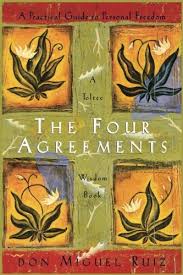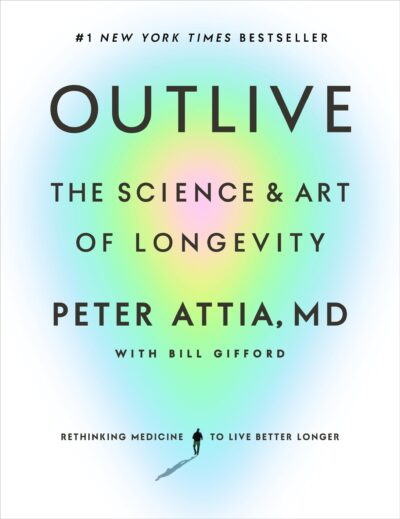68 Results with the "Self-help" genre
Adventure Fiction (1164)
Biography (435)
Business & Finance (1)
Children's Literature (124)
Comics (6)
Culture (51)
Drama (123)
Dystopian (29)
Fable (86)
Fantasy (1132)
Fantasy (203)
Fiction (1010)
Finance (1)
Gothic Fiction (12)
Historical Fiction (615)
History (122)
Horror (56)
Lifestyle (36)
Literary (404)
Literary Fiction (207)
Memoir (113)
Mystery (422)
Non-fiction (87)
Novel (549)
Paranormal Fiction (96)
Philosophical (182)
Philosophy (45)
Poetry (249)
Political Fiction (14)
Politics (42)
Practical (32)
Psychological (4)
Psychological Thriller (108)
Relationship (6)
Romance Novel (716)
Romantic Melodrama (14)
Satire (91)
Science (46)
Science Fiction (345)
Society (65)
Society (2)
Spiritual Growth (1)
story (2)
Thriller (704)
True Crime (56)
view (11)
Women's Fiction (2)
Young Adult (233)
-
Chapter
ACKNOWLEDGMENTS
 ACKNOWLEDGMENTS This book is the fruit of thirty years of trying to understand how people deal with, survive, and heal from traumatic experiences. Thirty years of clinical work with traumatized men, women and children; innumerable discussions with colleagues and students, and participation in the evolving science about how mind, brain, and body deal with, and recover from, overwhelming experiences. Let me start with the people who helped me organize, and eventually publish, this book. Toni Burbank, my…
ACKNOWLEDGMENTS This book is the fruit of thirty years of trying to understand how people deal with, survive, and heal from traumatic experiences. Thirty years of clinical work with traumatized men, women and children; innumerable discussions with colleagues and students, and participation in the evolving science about how mind, brain, and body deal with, and recover from, overwhelming experiences. Let me start with the people who helped me organize, and eventually publish, this book. Toni Burbank, my…-
360.1 K • Ongoing
-
-
 Chapter 1: Lessons from Vietnam Veterans. In the late 1970s, the author began their work as a psychiatrist at the Boston Veterans Administration Clinic, encountering a patient named Tom, a Vietnam War veteran. Tom's story unfolded over the course of his sessions, revealing a man deeply scarred by his experiences in Vietnam. He had joined the Marine Corps out of duty and idealism, rising quickly to the role of platoon leader. After surviving a harrowing experience during the war, where he witnessed the…
Chapter 1: Lessons from Vietnam Veterans. In the late 1970s, the author began their work as a psychiatrist at the Boston Veterans Administration Clinic, encountering a patient named Tom, a Vietnam War veteran. Tom's story unfolded over the course of his sessions, revealing a man deeply scarred by his experiences in Vietnam. He had joined the Marine Corps out of duty and idealism, rising quickly to the role of platoon leader. After surviving a harrowing experience during the war, where he witnessed the…-
360.1 K • Ongoing
-
-
Chapter
Always Do Your Best
 THE FOURTH AGREEMENT Always Do Your Best THERE IS JUST ONE MORE AGREEMENT, BUT IT’S the one that allows the other three to become deeply ingrained habits. The fourth agreement is about the action of the first three: Always do your best. Under any circumstance, always do your best, no more and no less. But keep in mind that your best is never going to be the same from one moment to the next. Everything is alive and changing all the time, so your best will sometimes be high quality, and other times it…
THE FOURTH AGREEMENT Always Do Your Best THERE IS JUST ONE MORE AGREEMENT, BUT IT’S the one that allows the other three to become deeply ingrained habits. The fourth agreement is about the action of the first three: Always do your best. Under any circumstance, always do your best, no more and no less. But keep in mind that your best is never going to be the same from one moment to the next. Everything is alive and changing all the time, so your best will sometimes be high quality, and other times it…-
90.9 K • Ongoing
-
-
 Chapter 12 delves into the profound and complex nature of trauma and its enduring effects on the mind and body. The historical perspective on trauma has evolved over the centuries, with medical and psychological communities initially reluctant to acknowledge the depth of its impact. Not until the horrors of World War I forced the issue into the limelight did society begin to confront the long-lasting physical and psychological effects of trauma, often termed "shell shock" at the time. Despite this, the…
Chapter 12 delves into the profound and complex nature of trauma and its enduring effects on the mind and body. The historical perspective on trauma has evolved over the centuries, with medical and psychological communities initially reluctant to acknowledge the depth of its impact. Not until the horrors of World War I forced the issue into the limelight did society begin to confront the long-lasting physical and psychological effects of trauma, often termed "shell shock" at the time. Despite this, the…-
360.1 K • Ongoing
-
-
 Chapter 14 explores the complexity and confusion surrounding nutrition, emphasizing the misinformation that has pervaded dietary discussions. The author draws on both personal experiences and professional insights to critique the divisive nature of popular diets and the shortcomings of traditional nutritional science. The chapter reflects on the author's journey from adhering strictly to a ketogenic diet to adopting a more flexible and scientifically informed approach, which he refers to as "Nutritional…
Chapter 14 explores the complexity and confusion surrounding nutrition, emphasizing the misinformation that has pervaded dietary discussions. The author draws on both personal experiences and professional insights to critique the divisive nature of popular diets and the shortcomings of traditional nutritional science. The chapter reflects on the author's journey from adhering strictly to a ketogenic diet to adopting a more flexible and scientifically informed approach, which he refers to as "Nutritional…-
87.7 K • Ongoing
-
-
 APPENDIXCONSENSUS PROPOSED CRITERIA FOR DEVELOPMENTAL TRAUMA DISORDER The goal of introducing the diagnosis of Developmental Trauma Disorder is to capture the reality of the clinical presentations of children and adolescents exposed to chronic interpersonal trauma and thereby guide clinicians to develop and utilize effective interventions and for researchers to study the neurobiology and transmission of chronic interpersonal violence. Whether or not they exhibit symptoms of PTSD, children who have…
APPENDIXCONSENSUS PROPOSED CRITERIA FOR DEVELOPMENTAL TRAUMA DISORDER The goal of introducing the diagnosis of Developmental Trauma Disorder is to capture the reality of the clinical presentations of children and adolescents exposed to chronic interpersonal trauma and thereby guide clinicians to develop and utilize effective interventions and for researchers to study the neurobiology and transmission of chronic interpersonal violence. Whether or not they exhibit symptoms of PTSD, children who have…-
360.1 K • Ongoing
-
-
 Chapter 2: Revolutions in Understanding Mind and Brain. In the late 1960s, during a year off from medical school, the author had an eye-opening experience at the Massachusetts Mental Health Center (MMHC), a prestigious psychiatric hospital. The hospital had long been regarded as one of the finest in the country, and it was here that the author was introduced to the rapidly changing landscape of psychiatric care. The prevailing treatment for mental illness at MMHC was psychotherapy, stemming from Freudian…
Chapter 2: Revolutions in Understanding Mind and Brain. In the late 1960s, during a year off from medical school, the author had an eye-opening experience at the Massachusetts Mental Health Center (MMHC), a prestigious psychiatric hospital. The hospital had long been regarded as one of the finest in the country, and it was here that the author was introduced to the rapidly changing landscape of psychiatric care. The prevailing treatment for mental illness at MMHC was psychotherapy, stemming from Freudian…-
360.1 K • Ongoing
-
-
Chapter
Breaking Old Agreements
 Breaking Old Agreements EVERYONE TALKS ABOUT FREEDOM. ALL AROUND the world different people, different races, different countries are fighting for freedom. But what is freedom? In America we speak of living in a free country. But are we really free? Are we free to be who we really are? The answer is no, we are not free. True freedom has to do with the human spirit — it is the freedom to be who we really are. Who stops us from being free? We blame the government, we blame the weather, we blame our…
Breaking Old Agreements EVERYONE TALKS ABOUT FREEDOM. ALL AROUND the world different people, different races, different countries are fighting for freedom. But what is freedom? In America we speak of living in a free country. But are we really free? Are we free to be who we really are? The answer is no, we are not free. True freedom has to do with the human spirit — it is the freedom to be who we really are. Who stops us from being free? We blame the government, we blame the weather, we blame our…-
90.9 K • Ongoing
-
-
 Chapter 13: Healing from Trauma – Owning Your Self, focuses on the transformative journey of healing from trauma, highlighting the importance of taking ownership of your mind, body, and emotions. Trauma is not just about the horrific events themselves, but the lasting imprints they leave on the body, mind, and soul. People may find themselves grappling with a range of challenging symptoms such as anxiety, depression, self-loathing, nightmares, flashbacks, and an overall sense of being disconnected from…
Chapter 13: Healing from Trauma – Owning Your Self, focuses on the transformative journey of healing from trauma, highlighting the importance of taking ownership of your mind, body, and emotions. Trauma is not just about the horrific events themselves, but the lasting imprints they leave on the body, mind, and soul. People may find themselves grappling with a range of challenging symptoms such as anxiety, depression, self-loathing, nightmares, flashbacks, and an overall sense of being disconnected from…-
360.1 K • Ongoing
-
-
 Chapter 15 highlights the complex relationship between diet, metabolic health, and individual nutritional needs, emphasizing that there is no universal solution when it comes to food. Through personal anecdotes and stories from patients, the author illustrates how commonly held beliefs about nutrition—such as the idea that a vegan diet or trendy eating plans automatically lead to better health—can often be misleading. These narratives shed light on the flaws of the Standard American Diet (SAD), which…
Chapter 15 highlights the complex relationship between diet, metabolic health, and individual nutritional needs, emphasizing that there is no universal solution when it comes to food. Through personal anecdotes and stories from patients, the author illustrates how commonly held beliefs about nutrition—such as the idea that a vegan diet or trendy eating plans automatically lead to better health—can often be misleading. These narratives shed light on the flaws of the Standard American Diet (SAD), which…-
87.7 K • Ongoing
-
- Previous 1 2 3 … 6 Next
